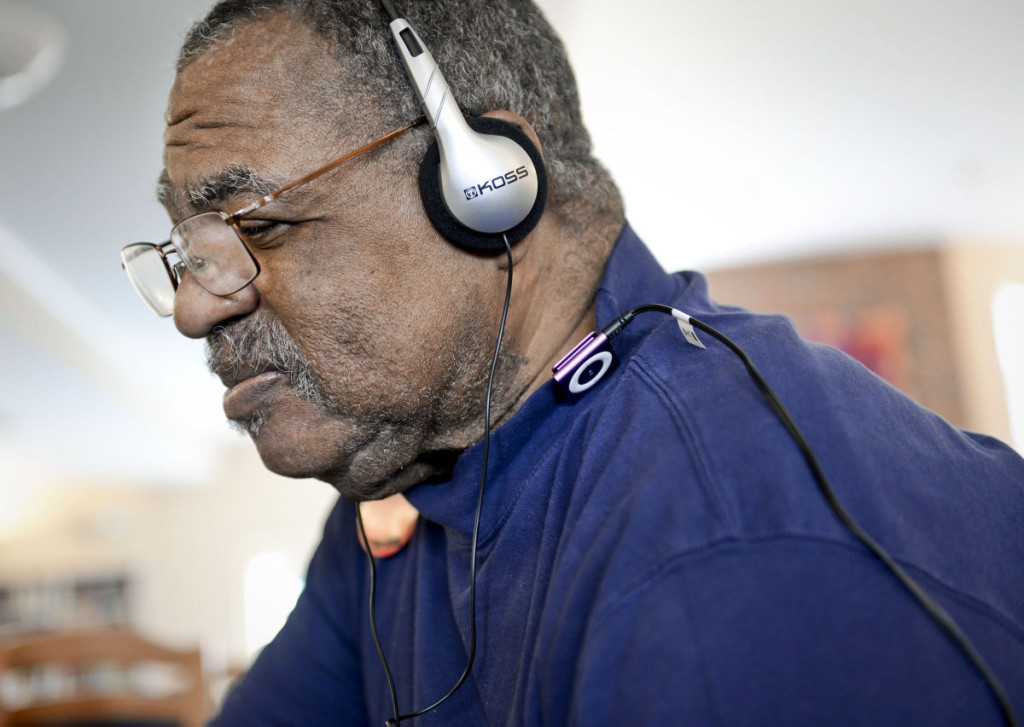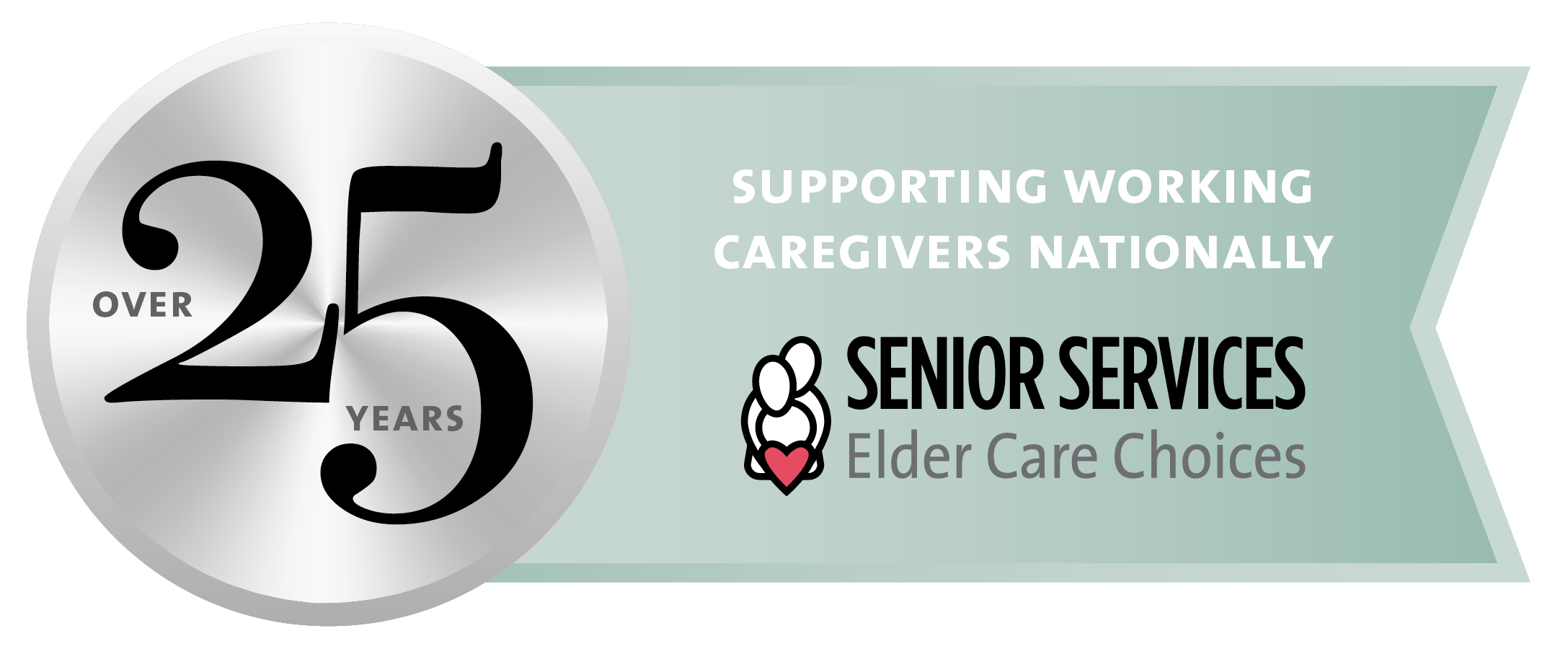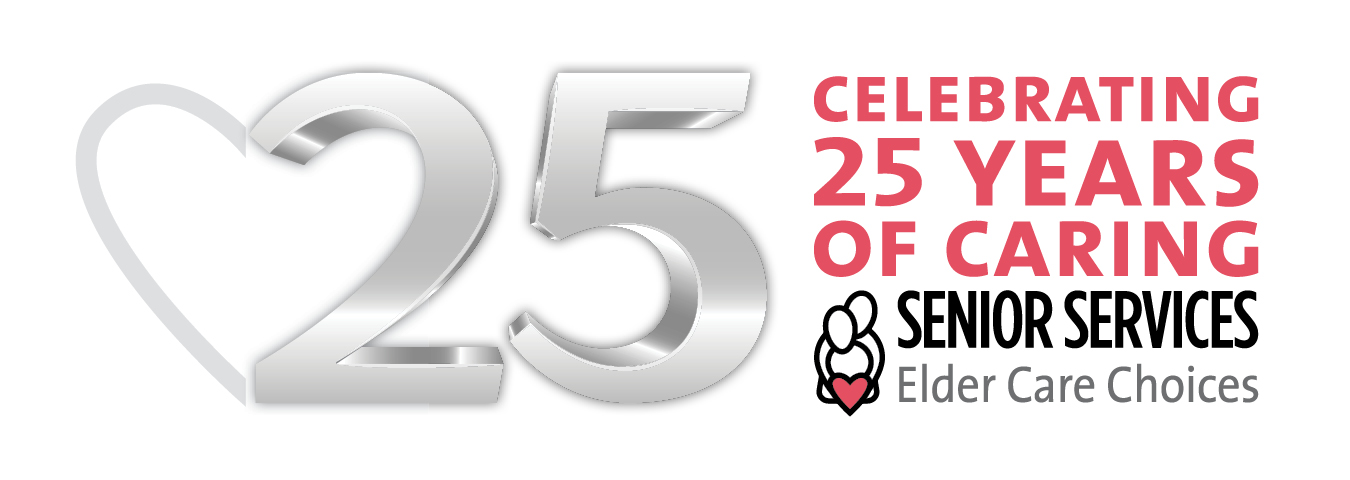Tuning in to memories helps people coping with dementia
The Music & Memory program offered at the Williams Adult Day Center is geared toward patients with Alzheimer’s disease and other types of dementia.
This story was originally published in the Winston-Salem Journal on October 15, 2015.
By Jenny Drabble Special Correspondent
It had been six months since Rona Klein had heard her husband utter a single word.
Ken Klein had been mostly nonverbal for years since doctors discovered he had frontotemporal dementia — a disease that affects the parts of the brain that control speech, personality, emotions and behavior.
So when he began singing, Rona Klein nearly fell out of her chair.
“He was 95 percent nonverbal, and all of the sudden, he’s singing,” she said. “Music is a happy place for him. Watching him sing, he gets this grin like, ‘Yup, I’m still here.’”
Ken Klein is one of 11 patients participating in the Music & Memory program offered through Winston-Salem’s Senior Services at the Williams Adult Day Center. The program is geared toward patients with Alzheimer’s disease and other types of dementia.
Participants in the program receive an iPod Shuffle and a custom playlist with songs that were popular when the individual was between the ages of 15 and 30. Researchers believe those are the happiest years of a person’s life.
Dementia is characterized by a decline in mental ability, often characterized by loss of memory and other intellectual abilities. Alzheimer’s disease is the most common form of dementia and affects about 5.3 million Americans.
The Music & Memory program helps tap into deep memories that are not lost to dementia and enables the participants to feel like themselves again.
For Ken Klein, an iPod Shuffle packed with his favorite bands from the 1950s and 1960s, like Frankie Valli and the Four Seasons, was just the ticket.
Music and attending concerts together had always been a big part of their relationship, Rona Klein said. Ten years ago, they saw the Coasters and the Platters in Las Vegas, and now songs from those two bands are some of the favorites on her husband’s playlist.
“He’ll sit and sing for hours,” said Rona Klein, a resident of Winston-Salem. “And he smiles, which I think is even better, knowing that he’s thinking of a happy memory. I love that.”

Bobby Hargrove listens to music on his iPod as he works on puzzles in the newspaper. The Music & Memory program provides iPods and custom playlists to help people with dementia tap into memories from their youth.
History of the program
Music & Memory, a nonprofit program, was founded by Dan Cohen in 2010 after the success of an experimental trial using iPods in four long-term care centers.
Through 2014, the New York-based program had expanded to nearly 1,000 care centers throughout the United States and Canada, with 17 certified programs in North Carolina.
Senior Services began offering the program in June. Financing from an Operation Lamb grant, along with money from a private donor, helped pay for the certification process, 10 iPod Shuffles, headsets, chargers and an iTunes gift card for use by participants.
 “Music in itself is calming, so this program can help patients go from a sobbing state to happy and relaxed,” said Kathy Long, Senior Services’ vice president of adult day services. “The music reminds them of pleasant memories, so they feel safe and reassured that everything’s good.”
“Music in itself is calming, so this program can help patients go from a sobbing state to happy and relaxed,” said Kathy Long, Senior Services’ vice president of adult day services. “The music reminds them of pleasant memories, so they feel safe and reassured that everything’s good.”
For some patients, it used to take 45 minutes and two staff members to calm them down when they became agitated. But with the iPods, it takes fewer than five minutes, Long said. The 11 participants, ages 50 to 90, seem to be happier and frequently ask for their music.
Senior Services is seeking additional donations of iPod Shuffles to expand the program to the rest of the 121 patients it serves.
“It gives them such joy and brings them back to a happier time,” Long said. “Music transcends all barriers. It’s amazing.”
The science behind the music
Long recently conducted a study with UNC School of the Arts to explore the effect of music on patients, staff members and visitors, and found that regardless of what type of music was played, everyone reported better moods.
Not only can music improve one’s mood, but it also can reduce the need for antipsychotic drugs and boost mental cognition in older people, according to AARP.
“Music is a powerful force that activates many big circuits in the brain: memory, emotion, attention. It’s a multisensory experience,” said Jonathan Burdette, a professor of neuroradiology at the Wake Forest School of Medicine. “To me, it’s a no-brainer to use music for Alzheimer’s patients as a window into a happier place.”
Although individuals with Alzheimer’s — a disease for which there is no cure — may not be able to remember names, faces or facts, music can trigger memories preserved from one’s younger years, Burdette said. Creating playlists from one’s teenage years makes sense because that is when people are most open to new experiences, and music tastes are generally locked in by age 30.
Favorite songs and familiar lyrics can also have a calming effect on brain activity and help the listener focus on the moment and regain a connection to those around them, Burdette said.
Clinical music therapy, which is common in Germany, has proven useful in reversing the effects of such conditions as strokes and traumatic brain injuries, he said.
“It’s tougher with Alzheimer’s because music isn’t going to make them get magically better,” said Burdette, a co-founder of the Laboratory for Complex Brain Networks at the university. “But it can help them live a little happier and a little deeper.”
Through brain imaging, Burdette has found that the hippocampus — the center of emotion and memory in the brain — is stimulated or “talks to itself” while people listen to their favorite songs, he said. This indicates that the brain is accessing memories that are already encoded.
Burdette has also found similarities in the brain activity of people listening to their favorite songs, regardless of the type of music.
“It doesn’t matter if it’s Edith Piaf or the Beatles, music can link to positive experiences from your past, even if you’re not aware of it,” he said. “Something about music touches people in a deep and personal way.”



